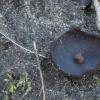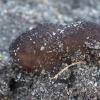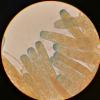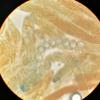
15-12-2025 15:48
 Danny Newman
Danny Newman
Melanospora cf. lagenaria on old, rotting, fallen

15-12-2025 15:54
 Johan Boonefaes
Johan Boonefaes
Unknown anamorph found on the ground in coastal sa

15-12-2025 21:11
 Hardware Tony
Hardware Tony
Small clavate hairs, negative croziers and IKI bb

15-12-2025 07:09
 Danny Newman
Danny Newman
indet. Rutstroemiaceae sp. on unk. fallen leavesMc

15-12-2025 07:05
 Danny Newman
Danny Newman
Pseudosclerococcum golindoi (det: Zotto)near Cosb

15-12-2025 11:49
 Danny Newman
Danny Newman
ITS sequences from the following two collections B

15-12-2025 12:34
 Danny Newman
Danny Newman
indet. Rhytismataceae on oak leafnear Purchase Roa

09-12-2025 12:06
 Andgelo Mombert
Andgelo Mombert
Bonjour,Je recherche l'article concernant Hypobryo
 Hi all,
Hi all,I am hoping to get some help with this peziza from this knowlegdeable forum:-)
Found 28/2/2019 in a mixed desciduous forest near the sea in Denmark. The soil is pretty rich - a sand mixed mull soil I guess.
Fruitbody 25 mm wide, dark brown with a hint of violet (especially obvious in direct light). Outer surface with a lighter brown colour and grainy.
Spores 14-17 x 8-10 µm, with two drops. Spores with round warts which seem larger at the ends of the spores.
Spores measured in water. Pictures from the microscope in melzers (sorry about the quality of the pictures).
/Rasmuds
Peziza boltonii might be the right candidate.
Kind regards,
Ron
what about the colour of the base of your Peziza: Was it brown-violaceus as well or brighter?
Cheers,
Marcel

The base is the same colour as the outside of the fruitbody - a bit more light brown as seen on picture #2
/Rasmus

P. boltonii was also my guess, but I have no experince with the species. The spore size fits, but what other characters do you base your suggestion on?
/Rasmus
The micro- and macroscopical features fit well.
Coulour is variable, depending on the stage of development from light violet (immature) to dark violet (mature) and even black (overmature).
The habitat convinced me also.
I found Peziza boltonii on 01-03-2001 in the centre of Maastricht in the most southern part of the Netherlands, it was the first record of this early species.
It grew on calcareous sandy soil along a path next to the old city wall between the bricks. Not a place where one expects to find fungi of any kind. In the past the builders of the wall used lime mortar as cement and this proved to be very interesting for P. boltonii as well as Tulostoma brumale and Omphalina rickenii which both could be found on top of the brick wall between moss in the joints. All these species seem to prefer calcareous soil which can be found in this part of the Netherlands or in the coastal region.
Since 2001 P. boltonii is working its way up north and has mainly been collected along the Dutch coast. Your find near the sea fits perfectly with this trend.
Hope this will help.
All the best!
Ron
I discovered that Peziza boltonii has been found in 2006 in Denmark. Unfortunately that's all the information I have.
It took me some time but I managed to find a PDF of the article regarding my find in 2001. I will send it to your private e-mail because it's part of a magazine and in total this is to big for Ascofrance.
Kind regards,
Ron
just to let you know why I had asked you:
https://www.persee.fr/doc/linly_0366-1326_2005_hos_74_8_13565
Cheers,
Marcel




 labessiana Boudier
labessiana Boudier